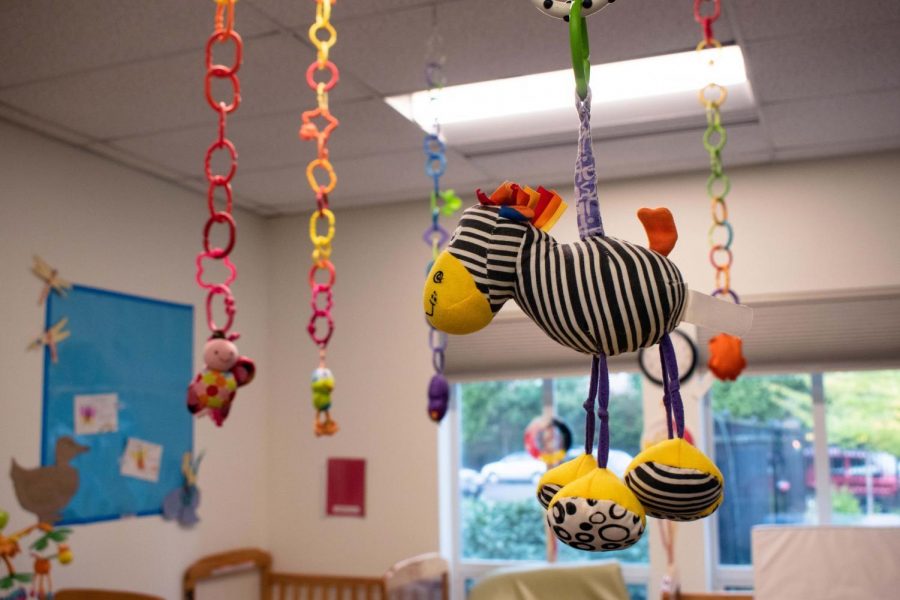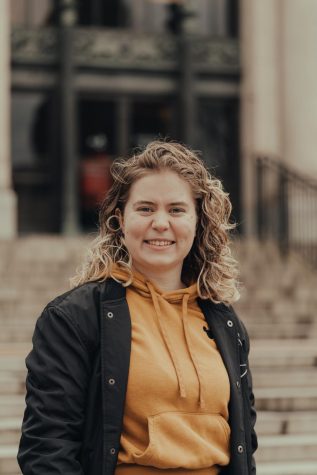OSU responds to petition asking for more caregiving support
October 20, 2020
After several faculty members created a petition asking Oregon State University for more resources for staff and student caregivers, their situation has improved, but they still face many barriers.
Caring for a child or other family members has never been easy for single parent households who work full time, two parent households in which both must work or students who attend school. However, since the beginning of the pandemic, the situation for faculty and student caregivers has only gotten worse.
In an attempt to solve this problem, multiple faculty members created a petition earlier this year for OSU, providing the university with suggestions on how to better support them. Since then, OSU has taken action to give caregivers more of the resources that they need.
On July 15, Provost Ed Feser responded to the creators of the petition and acknowledged the severity of the issue. Then, some university-wide letters that contained more specific plans that OSU was working on were circulated. Brian Sidlauskas, assistant professor of Fisheries and Wildlife, said that the plans included opening the on-campus childcare centers, such as Beaver Beginnings, with limited capacity as well as expanding the short-term care options offered through Our Little Village, both of which have now been enacted.
“Because of the Beaver Beginnings re-opening, two of my graduate students (who are also parents of toddlers) will be able to work on their thesis projects during the normal workweek for the first time since March,” Sidlauskas said. “In my own case, the expansion of OLV offerings to faculty will afford me three extra hours on Sunday afternoon to plan for the week… These are important advances and OSU deserves thanks and recognition for putting those options in place.”
However, despite that the opening of OLV has helped many caregivers at OSU, the fact that it is operating at limited capacity means that it cannot satisfy the demand that it needs to. Many caregivers are in need of childcare that OLV is unable to provide.
Faculty caregivers have also stressed the importance of timely communication. By the end of Aug., the university still hadn’t provided details of the short-term care plans for faculty and students who were needing to create a plan for the upcoming fall term.
“By the time parents learned of what the options were through OLV for older kids, most of us had already made other plans because we had to get something arranged before school started,” Susanne Brander, assistant professor of the Coastal Oregon Marine Experiment Station said. “Mid-Aug. became a scramble with parents arranging meetings and trying to form pods with kids from the same school, or searching on Care.com to find nannies or tutors.”
Additionally, Sidlauskas said that the university moving to online classes for fall and winter terms have eased some of the dilemmas because it provides more flexibility, though this causes issues of its own.
“Although we knew teaching would be online, being a professor includes many other duties, including meetings with collaborators, writing grants, advising graduate students, keeping up with administrative tasks, etc.,” Brander said. “Even though we are able to work from home… these job duties are very difficult to perform if one is also responsible for entertaining as well as teaching and monitoring kids doing school work online.”
Linda Richards, an instructor for the School of History, Politics and Religion, also wanted to emphasize the challenges of working while caring for a family member. Although Richards was grateful to be given a lighter load this fall by her director to catch up, her mother became seriously ill in May for about three months. After her mother fell ill, Richards quickly became overwhelmed trying to maintain her classes with caregiving with new home responsibilities.
“Students, faculty and society suffer from the way we structure our university as a hierarchy. I am also not sure there is any practical way to enact Family Medical Leave for most instructors, as it is unpaid,” Richards said. “I heard some instructors in the Education Department… have been given huge loads, also, some even more than 250 students for fall term. This can’t be just or right.”
Sidlauskas also expressed concerns about how the lack of childcare due to the pandemic would affect caregivers who are seeking promotion, tenure, a degree or even overall success in their field. Now that many faculty and students are needing to devote their time to childcare, that is taking time away from their other responsibilities, making those harder to complete and placing them at risk of falling behind.
“I am worried about the long-term impacts on the success of individuals, and on the overall diversity of the academic profession,” Sidlauskas said. “I think we need to continue to identify and implement options that allow parents the time that they need to advance their careers and studies, such as by expanding support for childcare whenever possible.”
Brander said that this issue has also affected women in particular — who are typically seen as the main childcare provider of a household — during the pandemic because they lose their jobs after a few months without adequate childcare. Even after the pandemic is over, these women likely won’t ever return to work at the same level of responsibility or income.
“This is a problem that transcends OSU, but the OSU leadership is trying to help its employees navigate it nonetheless,” Will White, assistant professor of the Coastal Oregon Marine Experiment Station said. “What we don’t know yet is what will happen outside of this near-term window… We have been encouraged to draft statements indicating how our performance during this time has been affected by the pandemic, but we will have to wait and see how those statements are taken into account down the road. I suspect there will be a lot of variability in those outcomes among units within OSU and between parents of different genders.”











































































































